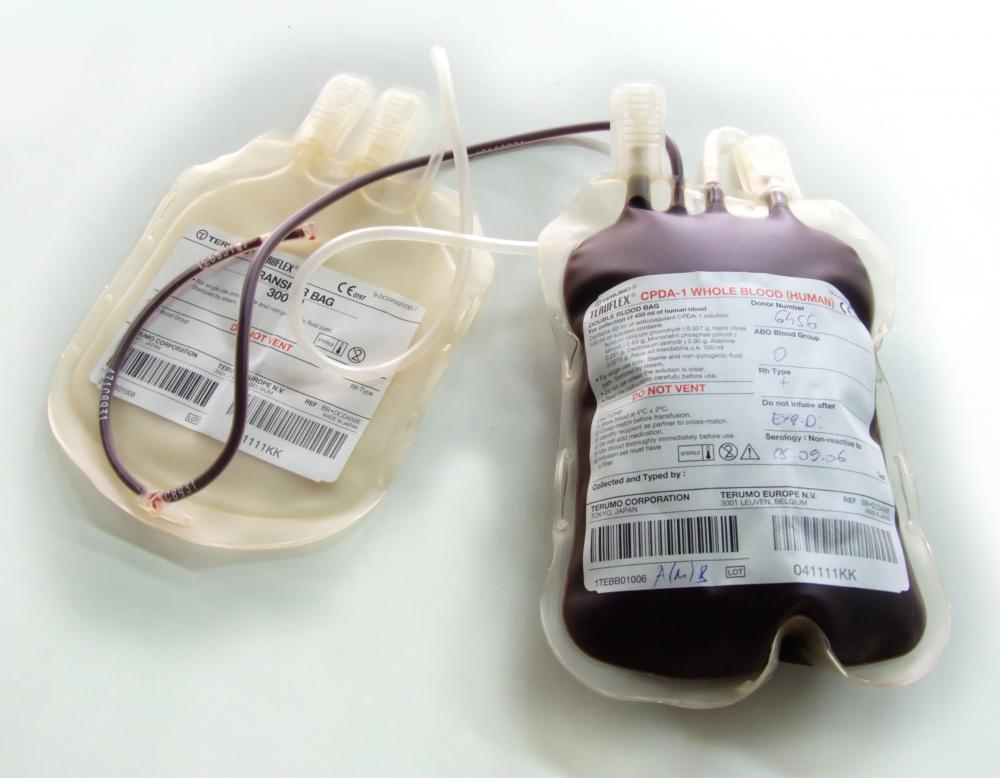At PracticalAdultInsights, we're committed to delivering accurate, trustworthy information. Our expert-authored content is rigorously fact-checked and sourced from credible authorities. Discover how we uphold the highest standards in providing you with reliable knowledge.
What are the Different Phlebotomist Careers?
Phlebotomist careers involve drawing blood for use in medical procedures, such as blood testing and blood transfusions. The tasks of the job are rather specialized, and therefore phlebotomist careers represent a relatively narrow field. For those interested in such a career, however, there still are some choices to be made.
Most options for phlebotomist careers center around the work location. There are many different types of places a phlebotomist can practice his or her skills. A hospital is the most obvious location, but blood work is also done in doctor's offices, medical labs, home health services, and long term care facilities just to name a few. Further, medical jobs are also needed in other institutions, such as prisons and some schools, especially universities.

The key for the phlebotomist is to find a location where they will be comfortable working. Not all locations will work for everyone. Some may not appreciate the long hours, or shift requirements, a hospital has. Others may find that things move too slowly at doctor's offices. Some may like the security that comes from working at a prison and being employed by the government. Others may find it extremely uncomfortable. It comes down to a matter of personal preference.

At a hospital, the work involves two primary tasks. Some phlebotomists make rounds around the hospital, checking doctors' orders at nurse stations and performing the required work. Others may work in a lab, where outpatient services may be performed on those who come in by appointment, or on a walk-in basis. Some may do a little bit of both. Some phlebotomist careers involve working specifically in the emergency room. This specialization is usually only seen at the largest hospitals, however.

Phlebotomist careers centered around a medical lab will likely have duties very similar to those who work at a hospital lab. They will be responsible for drawing blood from those who come in with a physician's order. They may also be responsible for handling chain of custody materials, such as specimens for drug screens.
Phlebotomists in other health care settings will all perform nearly the same functions, though many may not have to worry about chain of custody. No matter what type of career setting is chosen, a phlebotomist must be personable and have an easy-going style, yet maintain professionalism at all times. Drawing blood from anyone can be difficult. This is especially true of children, who may resist, requiring even more patience and understanding. Consequently, if someone is uncomfortable working with young children, they should take this into account, as some facilities deal with more children than others.
AS FEATURED ON:
AS FEATURED ON:

















Discussion Comments
In the country where I live, there are no facilities for phlebotomy training. Does anyone know of any online training institutes?
Post your comments